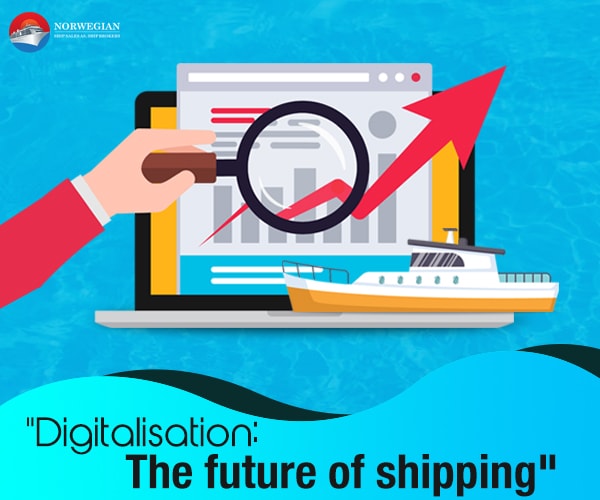The shipping that boasts of a long history is also regarded as an industry that has formed the base of the present civilisation. The transportation business of the maritime industry has been constantly seeing a growth since its inception that dates as far as the 5th BC. As the world’s population is growing, so are the demands for a myriad things. Maritime activities in the current times are playing a huge role in satisfying those needs and experts claim that this industry rarely does any wrong. It is safe to assume that this industry continues to be one of the primary factor for other industries, keeping up with the changing times.
The maritime industry is catching up with digitisation. Take a guided tour:
Advanced Fuel Management System
Digitisation is not only helping the maritime industry in enhancing the fuel efficiency, but also minimising the degree of adverse impact on the environment. It has been observed that the companies which have implemented a fuel management system have recorded a significant reduction in fuel consumption.
Green Energy Technology
The Scandinavian countries utilise green energy technology in driving ferries. Solar and wind energy resources are amply used. Sophisticated energy management systems are used in these vessels that are rooted in digital technology.
Unmanned Vessels
Not only unmanned cars, even marine vessels are soon to be driven automatically. The captain will supervise the navigation autonomously. He/she will have the full authority to control the vessel at any time.
Big Data
Not going into the details of technical jargons, here we shall focus on the benefits of collecting big data for the better performance of maritime vehicles. It helps in better monitoring of systems on board the vessels. This will ultimately help in adopting better operational practices. In the next step, cloud integration will help relevant parties to introduce apps allowing the ship managers to carry out the tasks in a better way.
High speed vessels for sale along with ferries for passengers have all gone through remarkable changes as they are fast adopting the modern and more advanced techniques of shipping. It is estimated that over 90% of the trade that is carried out all over the world occur across the seas as shipping is proven to be an extremely cost-effective method to do so. The business conducted overseas have also seen a drastic change from the prior years and has now become even more advanced with the rise in demands.
In the present times, the regulations that determine the rules of the shipping industry have become even more complex and so are the markets that face severe competition from every corner. The vessels themselves have become much more spacious, designed bigger and move faster to transport goods from one place to the other in a shorter amount of time. It is to keep up with the changing scenarios within the markets of today that the shipping industry too is looking to improve their tactics and they are thus turning to digitalisation. Digitalisation helps companies to conduct complex calculations and evaluations and also help them keep a track of the daily activities, to better gauge the industrial risks and opportunities.
Opportunities And Challenges
One of the major advantages of the digitalised future is that it can protect the budget while escalating the efficiency. The results from businesses would fare better, controlling the risks that might arise from operations and trades. It also caters to the timing as that is crucial for other industries to be in tandem with the shipping industry and can react much more promptly than it could in the past.
However, one of the main challenges about digitalisation, one that needs to be overcome at the earliest is integration. Communication is of the utmost importance and having different Energy Trading And Risk Management systems (ETRM) can be the initiation of a series of challenges. The different systems must work in sync. But with the introduction of a certain cloud based technology, integrating systems would cease to pose much of a problem.
It has thus without a doubt become a known fact that digitalisation has not yet come to a close and that the evolution does not look to be stopping any time soon.
If you are interested in investing in high speed vessels or double ended ferries that have been put up for sale, do leave your queries with Norwegian Ship Sales AS, one of the most esteemed ship brokers to maintain a vast inventory and make a sound investment.


